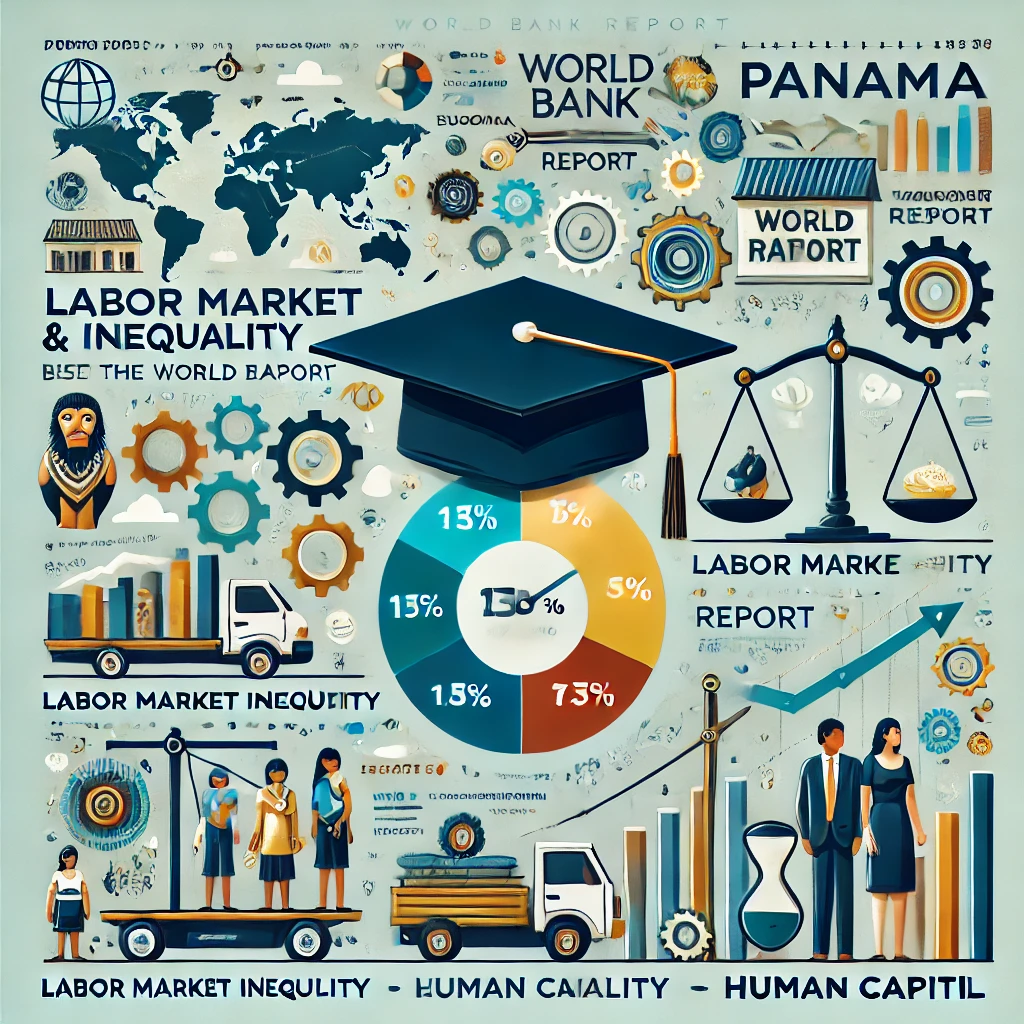World Bank Report Highlights Key Barriers to Inclusive Growth in Panama and Urges Focus on Education, Jobs, and Equity
The report reveals that future generations may achieve only 50% of their potential labor productivity due to deficiencies in education and job quality.

A new World Bank report titled “Panama: From Growth to Prosperity” highlights major obstacles to reducing poverty and inequality in Panama, focusing on challenges related to job quality, human capital, and labor market inequalities. Despite rapid economic growth in recent years, Panama’s Human Capital Index (HCI) has stagnated, signaling limited improvements in education and labor productivity.
The report reveals that future generations may achieve only 50% of their potential labor productivity due to deficiencies in education and job quality. This underscores the urgent need for investments in education and skills training that align with labor market demands.
Key Findings:
- Educational Gaps: Although access to education has expanded, low-income households continue to face barriers to quality education. Only 20% of Panamanian youth earn a higher education degree, and educational programs are poorly aligned with market needs.
- Labor Market Inequality: In 2023, low-skilled workers earned up to 74% less than tertiary-educated workers. Indigenous populations experienced even greater disparities, with incomes 36% lower than non-indigenous workers.
- Job Quality Decline: Despite a 2.2% annual growth in labor income (2001-2023), Panama's Job Quality Index declined faster than in other regional countries, primarily impacting low-income households. Most of the poorest 40% worked in informal, low-productivity jobs.
- Technological Divide: High-income workers dominate technology-intensive jobs, while low-skilled workers remain in informal employment with limited income growth opportunities.
Policy Recommendations: The report outlines three priority areas for achieving sustainable and inclusive growth:
- Closing Territorial and Ethnic Gaps: Enhance access to infrastructure and basic services in rural and indigenous regions to promote equity.
- Improving Human Capital: Align education, health, and training programs with labor market needs to support productive job creation.
- Boosting Resilience: Develop adaptive social protection policies and resilient infrastructure to protect vulnerable households from natural hazards.
Oscar Calvo-Gonzalez, World Bank Director for Equitable Growth in Latin America and the Caribbean, emphasized that improving job quality, education, and reducing labor market inequalities are essential for reducing poverty and achieving inclusive growth in Panama.
- READ MORE ON:
- World Bank
- Panama
- Human Capital Index










